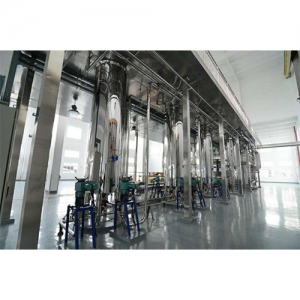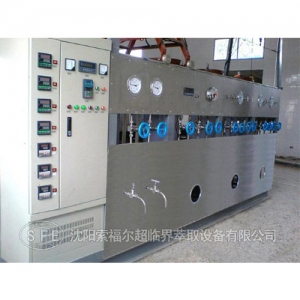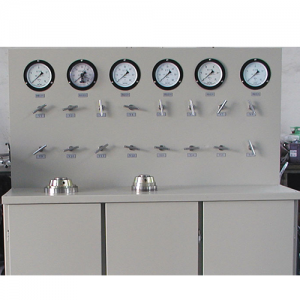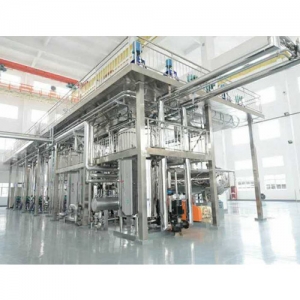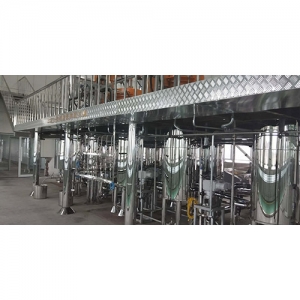Market situation of aerogel at home and abroad
Date of release:2018-10-22 Author: Click:
The global aerogel market
Allied market research reported in June 2014 that the market value of global aerogels was $221.8 million in 2013, estimated to be $1.896.6 billion by 2020, with a compound annual growth rate of 36.4 percent in the forecast period (from 2014 to 2020). As the exploration of aerogel materials in new applications continues to progress, the market expects the momentum of market growth to strengthen further over time.
It is understood that the compound growth rate of Aspen of the United States from 2008 to 2013 was 33.8%. Allied's report can be considered as a relatively conservative forecast report mainly based on the performance of Aspen of the United States. In fact, with the development of the asia-pacific market, especially the rise of China's aerogels, the development of the aerogel industry in the future will be significantly accelerated.
According to Freedonia research, the global adiabatic material market was estimated to be worth $32.1bn in 2010, with growth of 6.3 per cent a year ahead and $55.6 billion by 2019. Industry and equipment account for about one-third of the total, and construction accounts for two thirds of the total.
Aerogels currently occupy the top part of the whole adiabatic material market pyramid model, and the scale of the whole adiabatic material market is almost negligible at present. This indicates that the aerogels industry is still in the early stage of starting up, and at the same time indicates its huge development space in the future.
At present, the biggest obstacle that restricts the development of aerogels market is the high price. Once the production cost of aerogels materials can be significantly reduced, the market size will be dramatically expanded and the sales volume of products will be rapidly expanded, and the traditional adiabatic material will be innovatively replaced.
So when is the inflection point in the aerogel explosion? In fact, as the market price of aerogel materials keeps decreasing, the total engineering cost of adopting aerogel materials is close to that of traditional insulation materials in the field of industrial adiabatic insulation at present, but it has remarkable advantages such as energy saving, space saving, corrosion prevention and long life. According to many years of industrial data and experience, the inflection point of rapid development of aerogels has come quietly, and some leading aerogels enterprises will achieve explosive development!
As the aerogel significant reduction in manufacturing costs and capacity expansion, st, energy saving five years later in 2020, is expected to aerogel industries will quickly once more, capacity will rapidly expand, aerogel into explosive growth stage on the industry as a whole, is expected to compound annual growth rate as high as 55% above, and in the next 10 years will quickly replace traditional thermal insulation materials, especially in the field of industrial and equipment, replacement will be faster, the next 5 ~ 10 years, the size of the 19 ~ could reach $17 billion a year.
Domestic aerogel market situation
The early stage of the domestic market started relatively late, mainly foreign aerogel products in sales, prices are more expensive, marketing efforts are also smaller, as the aerogel domestic enterprises gradually increased in recent years, rising power, the falling cost, scale expands unceasingly, to benefit from the domestic energy conservation and emissions reduction policy implementation and the rapid expansion of economic dimension, aerogel industry rapid development into the channel.
In 2014, the domestic production of aerogels was about 8,500 cubic meters, and the imported products were about 1,500 cubic meters. The market size was about 182 million yuan. With the reduction of aerogels process cost and the continuous expansion of the industrial scale, some emerging applications have been developed, and the aerogel market has become increasingly mature.
As an emerging economy, China will grow rapidly faster than the international average in terms of market growth, and will enter the stage of rapid growth in the next few years. 2015 domestic aerogel is the size of the mutation of the year, the new capacity is expected to reach 16000 ~ 20000 cubic meters, has the main aerogel production enterprises are vigorous expansion), the actual output of about 19600 cubic meters, about 1000 cubic meters of imported products, the size of the market is expected to 330 million, 2020 will reach 3.716 billion yuan, from 2015 to 2020, the compound growth rate of around 61.1%.
According to the 12th five-year plan for national new materials industry, the output value of thermal insulation materials will reach 120 billion yuan. It is expected that the energy conservation and environmental protection industry will continue to achieve rapid development in the 13th five-year plan. According to the company, it is expected that aerogels will be used in large quantities in industry and equipment from 2015 to 2020. In 2020, traditional industrial insulation materials will be replaced comprehensively to share about 50 billion market each year in China. It is expected that from 2020, the aerogel material will start large-scale application in the construction field, and in 2025, it will completely replace the traditional building insulation material, sharing the domestic market of more than 100 billion per year. Articles come from the Internet

Aerogel equipment
The address of this article:http://www.sy-tc.com/en/news/419.html
Key word:Carbondioxideextraction,Aerogelequipment,Supercriticalfoamingequipment
Recently, browse:
Related products:
Related news:
- Product characteristics of supercritical fluid
- Classification of reaction vessels
- An overview of carbon dioxide
- What factors affect extraction
- A brief explanation of supercritical extraction
- What are the characteristics of supercritical carbon dioxide
- 9/5000 The way carbon dioxide is produced
- The application of carbon dioxide
- Supercritical CO₂ solvent content
- The development of supercritical fluid


